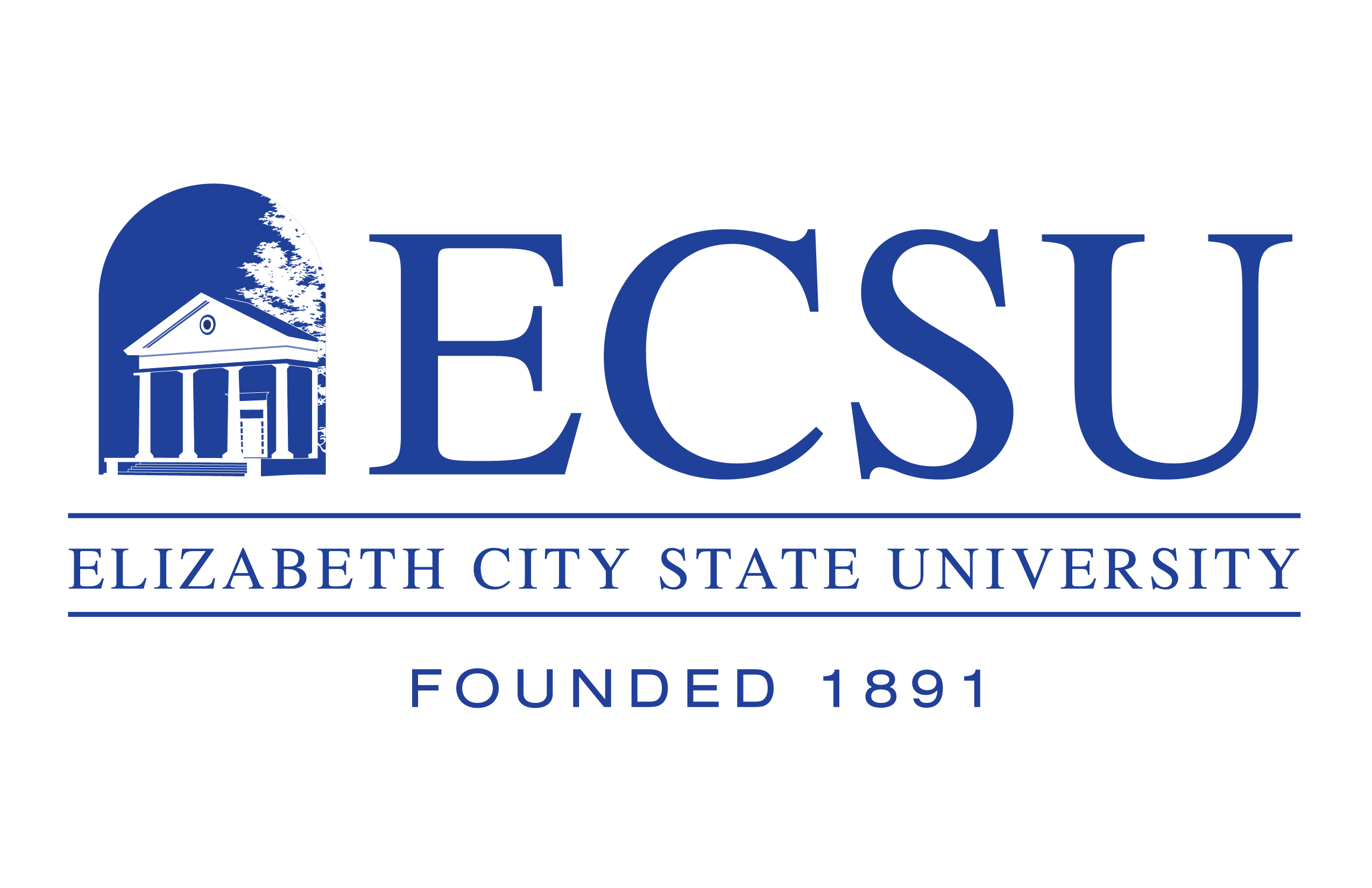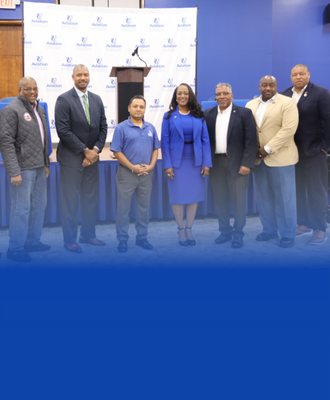ELIZABETH CITY, N.C. — With a mission to make the skies as diverse as the world below, aviation leaders from HBCUs, industry representatives, nonprofits, federal and state agencies and business stakeholders gathered at Elizabeth City State University (ECSU) for the fourth annual Aviation Directors’ Summit.
As a leader in affordable aviation education, ECSU hosted this year’s summit and drew HBCU aviation directors from around the country. The summit focused on improving access, funding and pathways for students in aviation.
“This summit is a testament to the power of collaboration and shared purpose. By bringing together aviation leaders, educators and advocates from HBCUs and beyond, we’ve sparked critical conversations and created pathways for our students to soar higher than ever before,” said Kuldeep Rawat, ECSU dean for the School of Science, Aviation, Health and Technology.
“Once you see us together, it synergizes us,” said Orestes Gooden, a retired Navy veteran and retired professor of aviation who worked at ECSU during the aviation program’s infancy.
Discussions explored topics like pilot pathway programs, and ways to increase financial support for students from underrepresented communities. Crucial discussions were also covered, including the microaggressions women in aviation experience.
“In my 24 years in the Navy, I’ve flown with another African American only once, maybe twice. But I have never flown with a female of any color. My mission since that realization has been to make sure we have more representation and expose more students to aviation,” said Gooden.
Titus Sanders, director of aviation science at Tuskegee University, shared why aviation programs at HBCUs are important.
“The first time I saw a Black pilot was when I looked in the mirror,” said Sanders. 
For Sanders, a U.S. Army veteran and United Airlines pilot, the summit offered insights and hope that minority students entering the aviation industry will see mentors and opportunities that were missing in his career path.
Sanders, also a first-time summit attendee, spoke about the challenges and successes across HBCU aviation programs, as his institution prepares to train pilots for the first time since 1946.
“There have been students from Tuskegee who have become pilots since then, who have trained through other programs, but the university has not trained a pilot since the last Tuskegee Airmen graduated,” said Sanders.
Michael Hales, founder of the HBCU Directors’ Summit and CEO of United Aviate Academy, described the unique support the gathering offers HBCU aviation directors, many of whom face the same challenges year after year. “Sometimes you can go through the year and think, ‘I’m the only one experiencing this,’” Hales said. “But when you come together with another group of folks who are also in the same space with you to understand and see how they are tackling these problems, it fulfills the whole purpose of us starting the aviation summit.”
Hales, who previously served as director of Delaware State University’s aviation program, started the summit to create a platform where HBCU leaders could strategize on the complex issues facing aviation programs.
“I started this because I’ve always had a passion for aviation programs to help them succeed, not just because they were HBCUs, but any program. It’s still a passion of mine,” Hales said. “It’s also kind of nice to see something you’ve created four years ago still going strong and doing well four years later.”
The summit also provided opportunities for leaders to share the successes, setbacks, and evolving goals within their programs. William “CJ” Charlton, Delaware State University’s aviation program director, reflected on the barriers that have historically restricted Black participation in aviation. Charlton, who dreamed of flying as a child, is a second-generation military aviator and a first-generation pilot. “My dad worked and flew on airplanes in the military, and I fly airplanes in the military,” he said.
Charlton elaborated on the economic limitations that have historically kept Black pilots out of aviation. “If you understand the history of aviation, you’ll know that in the beginning, when aviation began to thrive and flourish, we had very little generational wealth as a people,” Charlton said.
Sanders praised the collaborative spirit of the summit and addressed how important it is for HBCU programs to provide students with clear information on aviation career options. “I work with a lot of youth programs and educating our students on what’s out there has been a challenge,” he said. “A lot of these students want to pursue careers in aviation. Where are we sending them? ECSU is the most affordable school when it comes to aviation. How do we let them know that there’s an ECSU, a Tuskegee, a Hampton, a Maryland Eastern Shore or a Delaware State?”
While the challenges are considerable, attendees celebrated the resilience and growth of HBCU aviation programs. “From my perspective, it’s fascinating to see the transformation and the improvement of each of the aviation programs over the years,” Hales said. “It is still a rare thing in aviation, especially on the pilot’s and maintenance sides, to see Black females out there who are airline pilots. When I see one in the airport as I’m traveling, I’m like, ‘I have to take a selfie with you!’”
With HBCU aviation programs gaining motion, Sanders and others at the summit expressed optimism that the industry could soon look more inclusive and accessible for future generations of pilots and aviation professionals.
Rawat, who also serves as the director of ECSU’s flagship aviation program, further emphasized, “At ECSU, we remain deeply committed to making aviation education accessible, affordable, and transformative for the next generation of aviators.”
Thanks to the sponsorship from Delta Air Lines, JetBlue, PSA Airlines, SAIC, Republic Airways and Embraer Foundation, ECSU awarded 27 aviation students with scholarships during the summit.
When asked what a prospective aviation student would gain from attending an aviation summit, Monica Newman McCluney, head of U.S. corporate social responsibility and the Embraer Foundation—501(c)(3) nonprofit organization based in Brazil and created to expand social investment initiatives—said, “The most important takeaway for them is building a network. These are the movers and shakers in the industry who care about our students. The people in this room are the ones who are dedicated, each and every day, to creating those pathways for them.”
Speaking of building networks, Justin Mutawassin, captain at Delta Air Lines and pilot liaison for the Propel program, believes strongly in the power of mentorship, and sometimes mentorship comes from unlikely places. His path in aviation was unconventional but inspiring. After realizing his first career as a sports broadcaster wasn't the right fit for him, he dropped out of community college to explore his passion since age five.
"I looked around and figured entry-level was the best way to get in. I got a job at Delta Air Lines loading bags on airplanes," Mutawassin said. "One of my mentors in his 40s or 50s said, 'Look man, you're really sharp. You have a lot of potential.' Some of the guys in the break room gave me tough love. They said, 'Don't end up like us.'"
Mutawassin then went on to explore becoming an airline pilot.
As aviation continues to evolve, the efforts of HBCUs remain important to developing a more inclusive future for the field.

